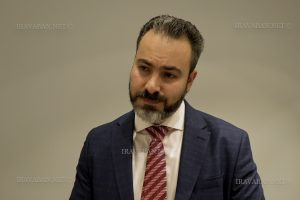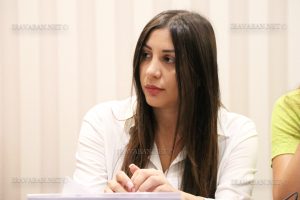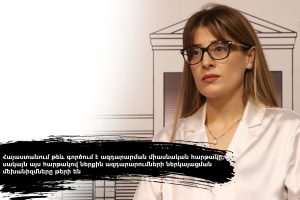Whistleblowing has a great place in the prevention of corruption and the fight against corruption. Ms Anna Manukyan, the Head of Educational, Public Awareness Programs and Monitoring Department of the Corruption Prevention Commission, mentioned in a conversation with Iravaban.net.
A part of the public has an attitude that whistleblowing such cases are “snitching”. “The idea of “snitcher” should be eliminated from among the public, it seems to me that it is the result of the lack of awareness campaigns. The aim of the awareness campaigns is to make our public understand that it is not a case, if we see a problem, we should report,” Anna Manukyan said.
According to the Head of Educational, Public Awareness Programs and Monitoring Department of the Corruption Prevention Commission, the implementation of anti-corruption education among children should be carried out based on age characteristics.
“As for whether the child “snitches” about the parent, of course not. The child will say to the parent, for example, this is not good, we were taught at school that it should be done this way. Many times I have seen a parent telling a child to run at a red light. Now, if we teach the child at school that this is not allowed, we must follow the traffic rules, and the parent says: we are late, let’s pass, a collision occurs. It turns out that we teach them something one thing; and they say something else at home. We imagine that the child should not “snitch”, but discuss the topic with the parent, “Mom, my friends will not consider this well”, she said.
Anna Manukyan also noted that schoolchildren are very open to such topics.
“We implement the educational program “Become a leader of change” and at the end they say: yes, we will become the leader of change, we will do it, and we can do it. In meetings with children, there is no one who says no, we will not change anything, and we have heard this many times with adults. Children are ready to learn, to separate corruption manifestations from non-corruption manifestations. They understand very well, they see their role in the fight against corruption,” he elaborated.
Lilit Matevosyan, an Education Expert of the Commission, noted that the commission suggested introducing anti-corruption education within the framework of various subjects, starting from the 2nd grade subject “I and the surrounding world” to the 12th grade “Social Studies”. “Materials appropriate to its content will be introduced in the framework of each subject.”
She also noted that the methodology of periodic study of public opinion on corruption has been developed. Such studies have been carried out in the past; the World Bank informed that it can provide the questionnaire in its entirety to the CPC. The Commission is going to apply that questionnaire and methodology, but if it doesn’t work, they can change it.
Please note that Citizens can openly and/or anonymously report the corruption and/or other cases they know through the Haytnir.am online reporting platform.
Any person can submit a report, including representatives of state and local self-government, private companies and non-commercial organizations,
You can submit a report regarding any corruption risk encountered in the territory of the Republic of Armenia, an incident of a corrupt nature, a conflict of interest by a public servant, or an apparent violation of a code of conduct, or incompatibility requirement, or other restriction, or declaration, or other apparent violations, or you have information on any of the above-mentioned cases.
Submitting a report is free.
We do not forget that whistle-blowers are not “snitchers”, they are decent and law abiding citizens.
Please note that this publication was prepared within the framework of the program “Multifaceted Whistle-Blowing Promotion in Armenia”, implemented by the “Armenian Lawyers Association” (ALA) NGO with the support of the Open Government Partnership (OGP), funded by the European Union (EU) within the framework of the “EU for Good, Eastern Partnership” project.
This publication expresses the position of the author, the ALA, which does not necessarily coincide with the position of the OGP and the EU.


















